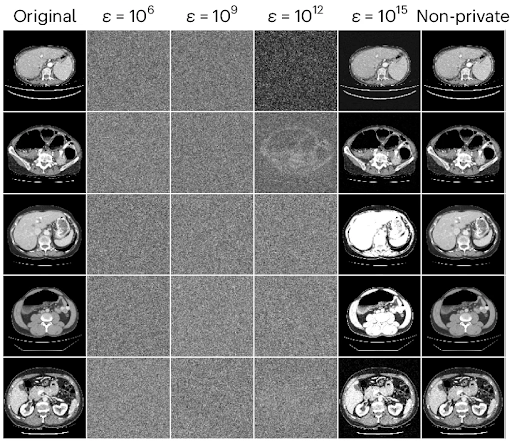In the fast-paced world of healthcare, the need for efficient and effective clinical documentation has never been more critical. Medical practice administrators, owners, and IT managers in the United States face increasing pressures to keep up with electronic health records (EHRs), while also ensuring quality patient care. Ambient Clinical Intelligence (ACI) is emerging as a solution, integrating advanced technological capabilities to enhance patient-provider interactions and improve documentation processes.
Understanding Ambient Clinical Intelligence
Ambient Clinical Intelligence refers to a set of technologies that utilize voice recognition, natural language processing, and data analytics to improve clinical workflows. This approach allows healthcare providers to focus on patient interactions instead of administrative tasks. For instance, ambient AI can automatically capture and transcribe conversations between providers and patients during consultations, turning these conversations into structured clinical notes. This functionality alleviates the documentation burden on healthcare professionals.
The Problem with Traditional Documentation
Many healthcare providers report spending an excessive amount of time on documentation and administrative tasks. On average, clinicians dedicate over 16 minutes per patient to EHR documentation. This contributes to a phenomenon known as “pajama time,” where hours are spent completing paperwork after office hours. Studies indicate that 75% of healthcare professionals believe that cumbersome requirements negatively affect patient care. Furthermore, around 60% of physicians identify administrative tasks as a leading cause of burnout.
This situation is concerning, as burnout can lead to higher turnover rates and poorer patient outcomes. Streamlining the process through ambient intelligence can reduce the administrative workload and allow healthcare providers to spend more time with their patients.
Enhancing Patient-Provider Interactions
With ACI, healthcare providers can achieve a more human-centered approach to medicine. The technology captures and documents critical patient interactions in real time. This can enhance provider-patient relationships. Providers using ambient technologies report an increase in eye contact with patients, fostering a more authentic dialogue. During a consultation, providers can focus on understanding a patient’s needs rather than worrying about taking notes or managing EHR entries.
One example involves the use of ambient clinical intelligence tools in rural healthcare settings. In remote Alaskan communities, healthcare providers equipped with AI can deliver advanced care despite geographical limitations. The AI assists clinicians in real-time decision-making, which is especially beneficial when access to specialists is limited.
As ambient AI tools translate complex medical jargon into simpler terms, patients leave their appointments with a clearer understanding of their treatment plans. This clarity enhances patient satisfaction and adherence to prescribed therapies.
The Role of Real-Time Documentation
A key advantage of ACI lies in its real-time documentation capabilities. Instead of relying solely on memory or notes, providers can use these tools to document conversations as they happen. This leads to higher accuracy in clinical records and reduces the potential for human error. For practices using ACI, studies show that healthcare providers may save upwards of 3 hours per day through improved documentation processes.
This immediate documentation can also enhance operational efficiency. Accurate clinical notes help reduce claims denials linked to incorrect coding, thus streamlining reimbursement processes. With ambient AI capturing details during consultations, clinicians can ensure that important patient data is not overlooked.
Addressing Physician Burnout
The increasing workloads and administrative burdens placed on healthcare providers contribute to burnout. ACI enables practice administrators to focus on improving work-life balance for clinicians. By automating routine documentation tasks, providers can see more patients in a day, reducing feelings of overwhelm and fatigue.
Organizations using ACI report higher job satisfaction among clinicians. These changes may help lower attrition rates. A healthier work environment benefits healthcare workers and leads to better patient outcomes, as satisfied providers engage more fully during patient interactions.
Feedback from healthcare professionals reflects this sentiment: “For the first time in years, my doctor is actually looking at me instead of a computer.” Such comments highlight the shift in healthcare interactions made possible by integrating ambient AI tools.
The Technology Behind Ambient Intelligence
At the core of ACI are several advanced technologies, including natural language processing and machine learning algorithms. These tools analyze and interpret spoken language, capturing details of medical discussions that might be neglected in traditional note-taking. They maintain context while transferring relevant information to patient records.
Integrating these tools into workflows is seamless and user-friendly. Many AI solutions provide real-time transcription without requiring extensive voice profile training, which encourages quick adoption. Furthermore, AI tools typically integrate with existing EHR systems, ensuring interoperability without significant disruptions to operations.
Improved Workflow Efficiency
The efficiencies gained through ACI extend beyond documentation. These technologies can offer evidence-based suggestions during patient encounters. This feature helps clinicians meet medical coding standards and ensures that best practices are followed during visits.
Studies have shown that AI-powered tools support care coordination. By streamlining communication between stakeholders in healthcare, including specialists and family members, ACI can reduce redundancies and improve overall workflow. Additionally, ACI can help manage patient data by facilitating easy data transfer across various systems.
- Multi-lingual support in ACI systems reduces the risk of miscommunication in diverse patient populations.
Streamlining Workflow Automation
The integration of ambient intelligence within healthcare improves patient-provider interactions and drives workflow automation across medical practices. ACI minimizes the need for manual data entry, allowing healthcare providers to focus on high-value tasks that require human insight.
The workflow automation capabilities of ambient clinical intelligence provide several benefits:
- Real-Time Transcription: ACI can transcribe patient encounters in real-time, reducing documentation time.
- Customizable SOAP Notes: ACI creates structured notes tailored to specific medical specialties, organizing patient data better.
- User-Friendly Interfaces: Advanced ACI systems do not require voice profile training, easing the transition for clinicians.
- Increased Operational Efficiency: By streamlining documentation, organizations can optimize resources and save costs.
- Reimbursement Process Improvements: Accurate documentation speeds up claims processes, ensuring financial viability.
- Continuous Learning: Many ACI systems adapt to unique terminology and preferences over time, enhancing utility.
- Enhanced Data Accuracy: ACI reduces the likelihood of errors due to manual entry, ensuring comprehensive patient records.
Healthcare organizations must consider the potential of ACI to improve their operational efficiencies and patient care. By embracing this technology, medical practice administrators and IT managers can position their practices for success.
The Future of ACI in Healthcare
Looking forward, the adoption of ambient clinical intelligence is expected to grow in the United States healthcare system. As organizations prioritize efficiency and patient-centered care, the need for AI-driven solutions will continue to increase.
Projects aimed at integrating AI into telehealth consultations and specialty care are already in progress, demonstrating the potential of ambient intelligence. The healthcare community acknowledges that ambient AI can support existing care models and create new methods of delivering healthcare services, especially in underserved areas.
To realize the potential of ACI, organizations must address concerns about data privacy and patient consent. Ongoing dialogue among stakeholders is vital to navigating the ethical principles of deploying AI while maintaining public trust.
In summary, ambient clinical intelligence offers an opportunity for healthcare organizations in the United States to improve patient-provider interactions and streamline documentation processes. This technology addresses numerous challenges faced by medical practice administrators, enabling them to deliver quality care while managing operational demands effectively.
Frequently Asked Questions
What is Ambient Clinical Intelligence?
Ambient Clinical Intelligence refers to AI-powered technologies that streamline clinical documentation and patient-provider interactions, enhancing workflows beyond basic transcription.
How does Sunoh.ai improve healthcare documentation?
Sunoh.ai utilizes AI-powered ambient listening to create detailed visit notes from patient encounters, saving providers time on documentation.
What are the main benefits of using Sunoh.ai?
Key benefits include time savings, reduced physician burnout, cost-effectiveness, improved accuracy, and the ability to focus more on patient care.
How does Sunoh.ai help reduce physician burnout?
By automating clinical documentation, Sunoh.ai alleviates administrative burdens, allowing healthcare providers to concentrate more on direct patient care.
Is Sunoh.ai compatible with existing EHR systems?
Yes, Sunoh.ai is EHR-agnostic and can integrate seamlessly with various Electronic Health Records systems, including eClinicalWorks.
What unique capabilities does Sunoh.ai offer beyond transcription?
Sunoh.ai goes beyond basic transcription by providing tailored highlights, actionable alerts, and comprehensive documentation summaries for physicians.
How does Sunoh.ai ensure patient data security?
Sunoh.ai adheres to industry-standard security protocols and does not transfer patient data outside the practice’s EHR system.
What impact does Sunoh.ai have on healthcare efficiency?
By automating documentation processes, Sunoh.ai enhances operational efficiency, freeing up time for healthcare providers to engage more with patients.
What types of patient information does Sunoh.ai capture?
It captures a wide range of information, including lab and imaging orders, medication prescriptions, referrals, and follow-up details.
How can healthcare providers get started with Sunoh.ai?
Providers interested in Sunoh.ai can explore its capabilities and schedule a demo for a first-hand experience of its features.
The post Exploring the Transformative Role of Ambient Clinical Intelligence in Enhancing Patient-Provider Interactions and Streamlining Documentation first appeared on Simbo AI – Blogs.











